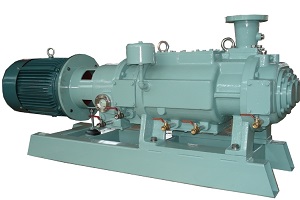Does vacuum pump oil go bad?

Does vacuum pump oil go bad?
Yes, vacuum pump oil can go bad. It degrades over time and with use, particularly when exposed to moisture, contaminants, or high temperatures. Proper storage and maintenance are crucial to extend its lifespan.
Here’s a more detailed explanation:
Why Vacuum Pump Oil Goes Bad:
-
Contamination:Vacuum pumps don’t have filters, so the oil can become saturated with contaminants like moisture, debris, and byproducts from the system being pumped.
-
Moisture Absorption:Vacuum pump oil is often hygroscopic (absorbs moisture), meaning it readily takes in water vapor from the atmosphere. This can lead to reduced pump performance and even corrosion.
-
Temperature:High temperatures can degrade oil, reducing its lubricating properties and lifespan.
-
Storage Conditions:Improper storage (e.g., in direct sunlight or at extreme temperatures) can also accelerate oil degradation.
How to Tell if Oil is Bad:
- Color: If the oil turns dark brown or black, it’s a sign of contamination and degradation.
- Appearance: Milky or frothy oil indicates moisture contamination.
- Smell: A burnt smell can indicate overheating and degradation.
How to Prevent Oil Degradation:
-
Proper Storage:Store oil in a cool, dry place, away from direct sunlight and in a sealed container.
-
Regular Oil Changes:Change the oil regularly, especially after pumping systems with moisture or contaminants.
-
Monitor Oil Condition:Use the sight glass on the pump to visually inspect the oil’s color and clarity.
-
Avoid Overheating:Ensure the pump is operating within recommended temperature ranges.
Consequences of Using Bad Oil:
- Reduced Pump Efficiency: Contaminated or degraded oil can reduce the pump’s ability to create a vacuum.
- Pump Damage: In extreme cases, using bad oil can lead to pump failure and require costly repairs.
- System Contamination: Degraded oil can introduce contaminants into the system being pumped.
By taking proper care of your vacuum pump oil, you can extend its lifespan, maintain pump performance, and avoid costly repairs.
How does oil vacuum pump work?
What oil goes in a vacuum pump?
Can you rebuild a vacuum pump?
